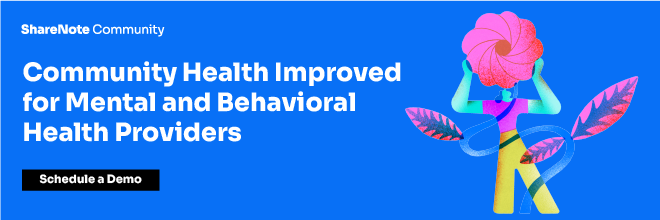The holidays are often painted as a time of joy, love, and happiness. Families gather together, friends exchange gifts, and everyone is in good spirits. However, the holiday season can be difficult for some people. For many, the holiday season is a time of increased stress. Many different factors can contribute to holiday stress, including mental health, cultural expectations, community dynamics, and even the weather.
For people who are struggling with mental health issues, the holidays can be a particularly difficult time. A NAMI study showed that 64% of people with mental illness report holidays make their conditions worse. Mental health providers should be aware of the potential stressors their clients may face during this time of year and be prepared to offer support.
Sources of Holiday Stress
The holidays can be a tough time for people with mental health conditions. The added stress of the season can worsen symptoms and trigger relapses. Mental health providers need to be aware of the potential stressors their clients may face during this holiday season. These stressors can include:
Pressure to Meet Social Expectations
Many people feel pressure to meet social expectations, even when they don’t have the capacity for them. For example, someone may feel pressure to be a good host, even though they’re not very outgoing. Or they may feel pressure to be a good guest, even though they’re introverted and would prefer to stay home. This can lead to frustration and even resentment as people try to meet unrealistic expectations.
Increased Financial Burden
The holiday season is a time of year when people are typically more generous with their time and money. However, for many, the holidays can also be a time of increased financial stress. The pressure to buy gifts for loved ones, travel to visit family and friends, and host elaborate celebrations can strain even the healthiest of budgets. For those already struggling to make ends meet, the added expense of the holidays can be crippling.
Family Dynamics
The holidays are often seen as a time of family togetherness, but for some people, they can be a source of stress. Family dynamics can be complicated and difficult to navigate. The holidays may bring up unresolved issues or exacerbate existing tensions that people would prefer to avoid. For some, spending time with family is a reminder of past hurts or current disagreements. Others may feel pressured to put on a happy face when they are feeling lonely or sad.
Get a free demo of ShareNote Community today!
Changes in Routine
The holidays often involve a lot of disruption to our normal routines. This can have an impact on both mental and physical health. For those who rely on routine to manage their mental health, any changes in habit could lead to increased stress levels. In addition, the cold weather and shorter days can cause people to become more sedentary which can lead to feelings of depression.
Cultural Differences
For people from different cultural backgrounds, the holidays may bring about confusion and discomfort. Family members may not understand why certain customs or traditions are practiced, leading to misunderstandings and arguments. Additionally, cultural minorities may feel pressure to assimilate to “fit in” with the majority during this time of year, which can be alienating.
Weather
Cold weather can have a significant effect on mental health. Seasonal Affective Disorder (SAD) is a type of depression linked to changes in seasons, with symptoms typically appearing during the winter months. For those already struggling with their mental health, the cold weather can exacerbate existing issues or even trigger new ones.
Identifying Clients Who Might Be Struggling
Providers should take the time to ask their clients how they are doing during this time of year, and if needed, offer additional resources or referrals. It is important that clients know that they are not alone in feeling overwhelmed by the holidays.
Signs to look out for can include:
• Increased anxiety or irritability
• Physical symptoms such as headaches, insomnia, and fatigue
• Changes in appetite
• Feeling overwhelmed or unable to cope
• Withdrawal from social activities or an inability to enjoy activities that were once enjoyable
• Substance abuse
• Suicidal thoughts or ideation
Providers should also be aware of any changes in behavior and take an active role in assessing their clients’ mental well-being during the holidays.
Conclusion
The holidays can be a difficult time for many people, and providers should take the time to understand how the holiday season may affect their clients. Taking an active role in assessing mental health during this period will help ensure that clients get the support they need to enjoy and make the most of the season. Providers can provide additional resources or referrals if needed and help create a safe space for clients to express any concerns or feelings they may be struggling with. A little extra attention and support during this time can make all the difference in helping clients stay healthy and enjoy the holiday season.
Using ShareNote’s Features to Support Clients During the Holidays
ShareNote’s features can provide a variety of services that can help clients manage their mental health during this time of year. With the customizable note templates, providers can quickly and easily document any changes in behavior or condition. The intuitive interface also makes it easy to access notes from anywhere and provides quick support to clients when they need it. In addition, ShareNote’s electronic pre-visit assessments can help providers assess their clients’ mental health before and after the holidays to ensure that they are receiving appropriate care.
Try a free demo of ShareNote Community and see how our software can make managing your practice during the holidays easy.

